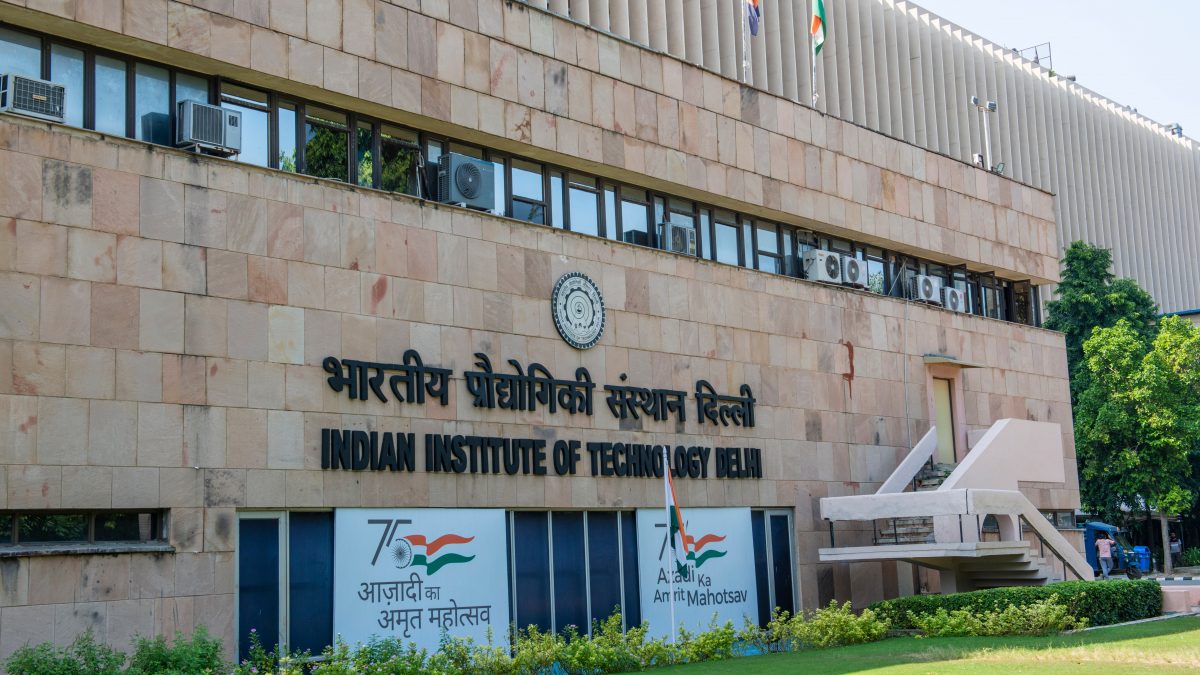IIT Delhi’s FITT Forward 2025 Tech Fest transformed the campus into a vibrant showcase of Indian innovation, where start-ups and researchers presented technologies highlighting the future being built in India. Entrepreneurs and young innovators shared their cutting-edge solutions with Firstpost’s Bhanu Pratap.
From fabrics that can destroy bacteria within minutes to India’s first autonomous pool-cleaning robot, the two-day event offered a glimpse into tomorrow’s world. For investors, policymakers, and tech enthusiasts, it provided a live demonstration of how deep-tech start-ups are reshaping the way we live, work, and move.
Start-ups and researchers unveiled technologies spanning wind turbines for vehicles, wireless charging, indigenous solar cells, EV infrastructure, advanced textiles, and aerospace-grade materials. The showcase gathered innovators, venture capitalists, and industry leaders, underlining India’s growing push towards self-reliance and future-ready solutions.
A wind turbine designed for vehicles
Shubham Kumar, founder of Karmic Winds of IIT Delhi, demonstrated his wind turbine project for buses, lorries, and trains. “As the vehicles travel, the turbines generate energy which is stored in a secondary power bank. This can then be used en route, supplied to factory owners at the destination, or in the case of trains, utilised directly during the journey,” he said to Firstpost. He added that the team is working on optimisation using carbon fibre plates to boost efficiency.
From herbal garments to germ-killing fabrics
Among the headline attractions was a bio-processing breakthrough that converts ordinary textiles into herbal wellness garments, skin-friendly fabrics infused with natural extracts. Complementing this is an antimicrobial fabric tailored for the post-pandemic world, capable of neutralising 99.9 per cent of bacteria and viruses within half an hour.
Giving vintage vehicles new life
On the mobility front, Tedpole is reviving scrapped vehicles by converting them into EVs. Vaibhav from its finance team showcased a restored 1920 vintage car and said to Firstpost that the company has already delivered more than ten Gypsies to the Indian Army, along with several vehicles to a national park in Rajasthan.
Materials built for extremes
At GroKalp H2C NT, Shivam Jaiswal introduced a composite material capable of withstanding 900°C, now submitted to DRDO for testing. He also highlighted work on “smart cement” designed to improve thermal conductivity in buildings and extend their lifespan.
Smarter cities through AI
Urban innovation also drew attention. One start-up is building AI that recognises traffic signs in real time, while another is developing camera-based traffic classification systems now used by global city planners to redesign urban spaces. Simultaneously, an indigenous engineering venture is powering simulation software for the automotive industry, strengthening India’s position in global supply chains.
Wireless EV charging
Wireless charging took the spotlight as well. Dash Dynamic’s Kushi explained to Firstpost how their solution uses electromagnetic resonance, “The user simply parks the vehicle on the charging pad, and charging begins automatically, no plugs, no dashboards.”
Solar panels the size of paper
P3C Technology and Solutions Pvt. Ltd. showcased its innovation — perovskite solar cells. Dr Ankil Rao, head of R&D, described them as “thin, paper-sized solar panels” developed entirely in India. Flexible and efficient even in low light, they can be installed where conventional solar panels cannot. “We are already collaborating with Tata Motors, Tata Power, Indian Railways and DMRC,” Dr Rao told Firstpost.
EVA drives India’s EV ecosystem with indigenous solutions
EVA Technologies, co-founded by Rahul Soni, is building EV charging infrastructure with fully indigenously developed hardware, software, and firmware. The start-up has already sold over 6,000 EV chargers in three to four years. “This is a Made-in-India initiative, ensuring solutions that are easy to use, service, and maintain,” Soni said.
Extreme cold? No problem
Students from IIT Delhi’s Textile Department impressed with their use of aerogel — the lightest solid on Earth — to create fabrics that withstand temperatures as low as –200°C. Jackets designed with this technology can protect soldiers in high-altitude regions down to –40°C, while remaining far lighter and less restrictive than traditional cold-weather gear.
Compact solutions for surgery
In the medical field, PhD student Gauri Naik showcased a compact laparoscopic camera holder designed for paediatric surgeries. “Such devices abroad are bulky and expensive. Ours is India’s first and is far more compact, addressing the challenge of limited space in paediatric laparoscopic procedures,” she said to Firstpost.
FITT’s role in scaling innovation
Kiran Sable, incubation manager of IIT Delhi’s FITT, stressed that the foundation’s core aim is to commercialise innovations emerging both inside and outside IIT. He noted that FITT’s portfolio already includes more than 450 start-ups with a combined valuation of over $500 million. “Our ambition is to at least double this value every six months by nurturing and supporting start-ups, while onboarding a fresh wave of deep-tech ventures,” he said.
“Start-ups thrive when they tackle two fronts, everyday lifestyle challenges and long-term aspirational ones,” said Dr Nikhil Agarwal, managing director, FITT.
Agarwal emphasised that while solving daily problems often creates sustainable businesses, investing in futuristic challenges ensures humanity is prepared for what lies ahead.


)

)
)
)
)
)
)
)
)



